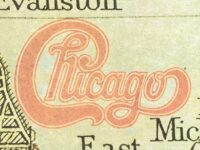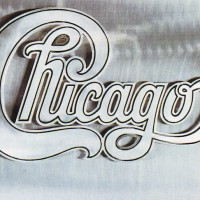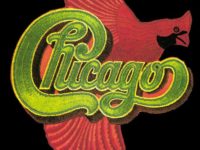There are plenty of bands that wear their influences on their sleeves, to the point where their material could be mistaken for those who influenced them. Sometimes its an intentional homage, other times its accidental — a musician growing up on the exposure of his influences subconsciously copping their style on his/her own material: The unintentional tip of the hat.
While bands and musicians are often derided for this “lack of originality,” there’s also the school of thought that imitation is the highest form of flattery. Sometimes, musicians deserve a little slack for their lack of originality: There’s a certain humility in recognizing that creativity doesn’t exist in a vacuum.
For instance, I grew up on the music of Chicago. I’m the youngest of six by 12 years. The music I was exposed to by my older siblings in my early years has largely stayed with me, and while I’ve grown to enjoy other bands and musicians, Chicago’s music has always been my musical compass — my security blanket of sorts. When times have been tough, their music has helped me through it … as both a reminder of happier times and an acknowledgment that if I can get through the rough spots, I’ll be rewarded with smoother roads ahead.
As such, Chicago’s music is now effectively ingrained in my DNA. Whenever I hear horns in a rock or pop song, I hear Chicago’s influence on that music. Sometimes the influence is subtle, and sometimes the influence is a giant exclamation mark — about as subtle as a jackhammer in a library.
Here’s a list recognizing those times. I call it the Chicago Songs … That Weren’t:
5: MATCHBOX 20, “IF YOU’RE GONE”(MAD SEASON, 2000): There’s a story that Rob Thomas wanted Chicago to do the horns for this song but didn’t approach them to do so because he’d been misinformed that they didn’t do sessions for other bands. The Chicago horns have indicated that, had they been approached, they would gladly have performed on this track.
Either way, the horn chart is trademark Chicago: This is what a Chicago ballad should sound like. It’s almost ironic that Chicago’s horns are conspicuously absent on their three biggest hits (“If You Leave Me Now,” “Hard to Say I’m Sorry,” and “Look Away”), yet one of Matchbox 20’s biggest hits has a horn chart that would not have sounded out of place on a Chicago album.
This was the Chicago hit ballad that wasn’t. It sounds more like Chicago than some of their own hit songs.
4: LITTLE RIVER BAND, “STATUE OF LIBERTY” (LITTLE RIVER BAND, 1985): This song was originally recorded a year or two before by a European prog rock outfit Esperanto, featuring Glenn Shorrock on vocals. When Shorrock left to form LRB with members of Zoot and Mississippi, he brought this gem along with him.
The lyrics would not have sounded out of place coming from Robert Lamm; in fact, the song would have fit perfectly on Chicago V. Meanwhile, musically, the horn chart is reminiscent of the material on Chicago VI. Whenever I listen to the song I can almost hear a Chicago version in my head: Robert Lamm vocals, a tight Peter Cetera bassline and vocal harmonies with Robert, Terry, and Peter instead of Glenn Shorrock, Beeb Birtles, Graeham Goble, and David Briggs.
LRB would later shift to a more pop-oriented, horn-driven sound in the ’80s with a handful of other tracks that had obvious Chicago influences — but it all started with “Statue of Liberty.”
3: TOTO, “PAMELA” (THE SEVENTH ONE, 1988): This almost feels like cheating. In the ’80s, members of Chicago and Toto were contributing to each others albums so much that at times it seemed the two bands had merged into one. Jimmy Pankow wrote and even won a Grammy for the horn chart on “Rosanna,” and found himself playing trombone on this Jerry Hey horn chart from The Seventh One, as well.
While Jeff Porcaro’s trademark shuffle on “Rosanna” made that more a Toto song with a strong Chicago influence, I’d argue “Pamela” sounds even more like a Chicago song than “Rosanna.” A couple years before, Jeff Porcaro had approached Jason Scheff about possibly joining Toto as a replacement for the recently departed Fergie Frederiksen. Unfortunately for Porcaro, he was too late, Scheff had already joined Chicago as Peter Cetera’s replacement. It was on Scheff’s recommendation that Joseph Williams was instead tapped to join Toto.
Williams and Scheff have similar vocal styles and I don’t think their vocal similarities are any more evident than on “Pamela.” I could just as easily hear Jason Scheff singing this as Williams, though the same can’t necessarily be said for some of the other Chicago-influenced Toto songs that Williams sang lead on (“Last Night,” “‘Till the End,” and “Stop Loving You”).
2: BILL CHAMPLIN, “YO MAMA” (SINGLE, 1978): Whenever I hear this song, I wish that Bill and Chicago had crossed paths a few years earlier, before Terry Kath’s untimely passing.
Vocally, Champlin and Terry Kath were “brothers from another mother.” These two cats both had a tremendous amount of soul, and I’d have loved to have heard what this cooker would have sounded like with Bill and Terry trading off on lead vocals.
While much of the material on Bill’s 1981 Runaway album would not have sounded out of place on Chicago 16 or 17, “Yo Mama” would have been an excellent addition to 1976’s Chicago X.
1: BLOOD SWEAT AND TEARS, “ROLLER COASTER” (BLOOD SWEAT AND TEARS, 1973): Given the nature of this list, it was inevitable that this “other horn band” would have at least one song on the list.
“Roller Coaster” has a horn chart that dances and duets with Jerry Fisher’s vocals in much the same way that many of Chicago’s did in counterpoint to the vocals of Peter, Terry, or Robert. Fisher’s vocals on this track are also reminiscent of Robert Lamm’s vocals on “Skinny Boy.”
I can almost hear Lamm singing this instead of Fisher. And that horn chart? Wow! That would have given the guys in Chicago a real workout.
[amazon_enhanced asin=”B00137TC6C” container=”” container_class=”” price=”All” background_color=”FFFFFF” link_color=”000000″ text_color=”0000FF” /] [amazon_enhanced asin=”B000B6VUD4″ container=”” container_class=”” price=”All” background_color=”FFFFFF” link_color=”000000″ text_color=”0000FF” /] [amazon_enhanced asin=”B001386TEO” container=”” container_class=”” price=”All” background_color=”FFFFFF” link_color=”000000″ text_color=”0000FF” /] [amazon_enhanced asin=”B0041G7XTU” container=”” container_class=”” price=”All” background_color=”FFFFFF” link_color=”000000″ text_color=”0000FF” /] [amazon_enhanced asin=”B00123B3CI” container=”” container_class=”” price=”All” background_color=”FFFFFF” link_color=”000000″ text_color=”0000FF” /]
- The Most Surprising Moment on Alan Parsons Project’s ‘Eve’ - August 27, 2024
- Why the Audiobook Versions of Jimmy Barnes’ Autobiographies Are Definitive - June 24, 2024
- Kahvas Jute – ‘Wide Open’ (1970): Antipodean April - April 28, 2024





The song GOD (Good Old Days) by Fastball definitely qualifies in this group. Modern day rocking Chicago song.
I’ve always thought that to.
I’d like to add BS&T’s “Go Down Gamblin” to the list. I could see that as a Terry Kath song on an early album with him singing lead & leading the way on guitar. Nice job Darrin.
Thought the same thing about the Chicago horn section and the Matchbox 20 song. Also the idea “if you’re gone” is not that different from the sentiment of “if you leave me now.”
Great comparison! Both stir up the same emotion